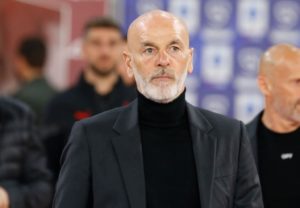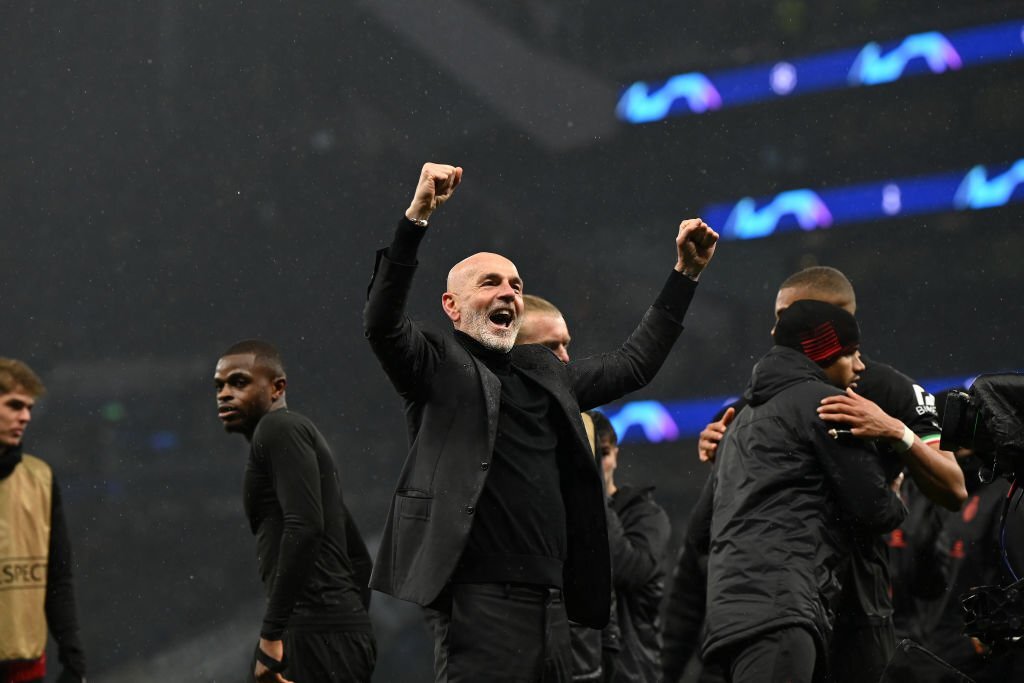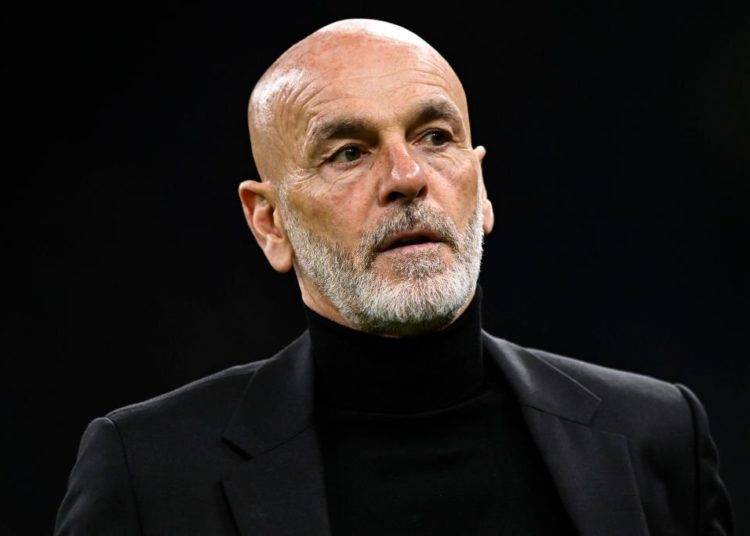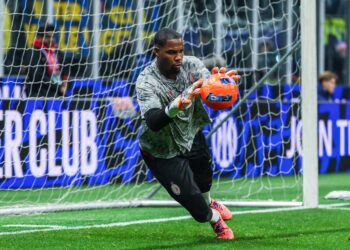Stefano Pioli has given a long and interesting interview to the French newspaper L’Equipe. Ahead of tonight's crucial fixture against Napoli in the Champions League, the Rossoneri head coach entrusted the French outlet with the following statements:
"I'm happy, of course. It's a journey we started three years ago, after years in which the club was far from the highest European levels. Seeing this team grow is a real source of pride. This gives an idea of the work we are doing. That said, Milan's history is to be in the Champions League. So we are very happy, but we must not stop."
On the three-year journey and the formation of the team, Pioli stated:
"We have progressed step by step. And, at every transfer window, we have tried to improve the team. There was this January 2020, with the arrival of Ibra, (Simon) Kjaer, (Alexis) Saelemaekers, where we improved not only the technical aspect but also the character aspect. We have a young team, we are doing very well in Europe and we have more difficulties in the league. The next few months will be decisive in understanding what season we will have made. It has been easy, for two reasons. First, because the club has been good at choosing these young, super players. Then because when I make my team, I don't look at the identity card. It is often wrongly thought that it is the coach who makes the choices. But it is the players, every day in training, who make the choices. We have very good boys, we have given them the necessary time to grow. It takes patience but it's there at Milanello. Elsewhere in Italy there is less. Young people need to be waited for, accompanied, accepting that they may make mistakes".
On Zlatan Ibrahimovic:
"We're not talking about a normal player here. We're talking about a champion, technically but also morally, a champion of motivation and who, for a very young group, was obviously seen as a model and reference. Zlatan raised the level of daily competitiveness and this enormously helped this team".
On Olivier Giroud and Theo Hernandez, Pioli said:
"I have a good feeling with the French, they are intelligent boys who speak Italian well. Giroud? I expected it, because you have to look at his statistics from the beginning of his career. I spoke to him twice in person before he signed and I had very positive feelings, his listening, his respect, I knew we would work well together. He is a great player. And he is above all a reference point for our offensive phase, a true team player, generous, always positive. Theo Hernandez? He's different. He's younger (25), he's more closed off, but I love him. He is a physical and technical phenomenon, I am sure he still has a lot of room for improvement, he also has to convince himself of this. And sometimes we coaches forget this truth: we cannot change the people or the players they are. Obviously, we want to make them progress and, with Theo, we have worked a lot, not only defensively, by the way. But, it's true, I don't want to change him."
On Mike Maignan and Pierre Kalulu, Pioli said:
"I didn't know Mike before playing against Lille in the Europa League. They beat us 3-0 at home (in the group stage, in 2020-2021), and at the end of the match, I said to my goalkeeper coach: 'You have to keep an eye on him.' His communication and presence in the game impressed me. I was sure he was a great goalkeeper, but he turned out to be even better than I thought. He's very meticulous in his preparation for matches and is a player who wants to constantly improve. Training him is exhausting because he demands a lot, but he's also fantastic because he's motivated. When you're always the coach who has to motivate everyone else, something is always missing after a while. But with Mike, nothing is missing. And then there's Pierre, the pleasant surprise. A big surprise, yes. Pierre is a fantastic guy. Throughout his first season here (2020-2021), he played very little and worked a lot. He never gave up an inch, and the less he played, the harder he worked in training. Because when you're not playing, it's not enough to work well, you have to do better than the others. And Pierre always had this motivation. As a result, he's improving rapidly, and it's not over."
On managing strong personalities:
"When you're direct and clear with them, you don't have any problems. On the contrary, I think it's the opposite: the bigger the player, the easier it is. It's when you're dragging a player who thinks he's a champion when he's not that it's complicated."

Pioli on his work as a coach:
"I never feel like I've won a match or lost one. It's the players who win, it's their qualities that make you win. Then I analyze. I do my balance sheet, and I can say, at the end of the match, that I prepared the team well, made the right choices at the right time, or admit that I could have done better. But I've never said to myself, 'I won this game because I put Claudio in for Filippo.' Self-criticism is never linked to the result. Because the result... sometimes a ball goes in, sometimes it goes out, sometimes there's a good whistle, sometimes there's a less fair one. My judgment only refers to the team's performance, the situations we prepared, what I should have prepared, the changes I made, the ones I should have made. But I'm never influenced by the result, like all the Monday morning experts. It's too easy to say, 'We won, so we were good.' And it's not true, the players know it. If you only think about the result, you're not making progress. We must never lose sight of the essence of our work, which is to work well as a team. Sometimes you work well and lose. And often you win, but you can do better in terms of continuity. Victory tells you that you put in what was needed in terms of determination, desire, and attention. That's all."
Pioli on the coaches whom he admires:
"There are many. I believe the two best in the world are (Pep) Guardiola and (Carlo) Ancelotti, not for the same reasons, but they are the best. I also watch (Mikel) Arteta at Arsenal a lot."
Pioli on data and statistics:
"There are many, but they cannot replace the eye. Thirty minutes after the matches, they all arrive, and I like it when I see in the numbers the feeling I had watching the game. But most of the time, I found a good player, and his statistics are not good at all (he smiles, ed). I know if my player is in a good position in certain situations, and algorithms cannot guess that. You play an offensive game. Possession, for example, doesn't interest me. With my staff, we have a board after every game to analyze a bit, and possession is not present. What interests me is where we position ourselves on the field, how many shots we take, how many we concede, how many chances we create."
















